The Whale's Brendan Fraser & Samuel D Hunter on empathy, redemption and ‘Furry Vengeance’ 2
ShortList chats to the star and writer of the Oscar-nominated movie.

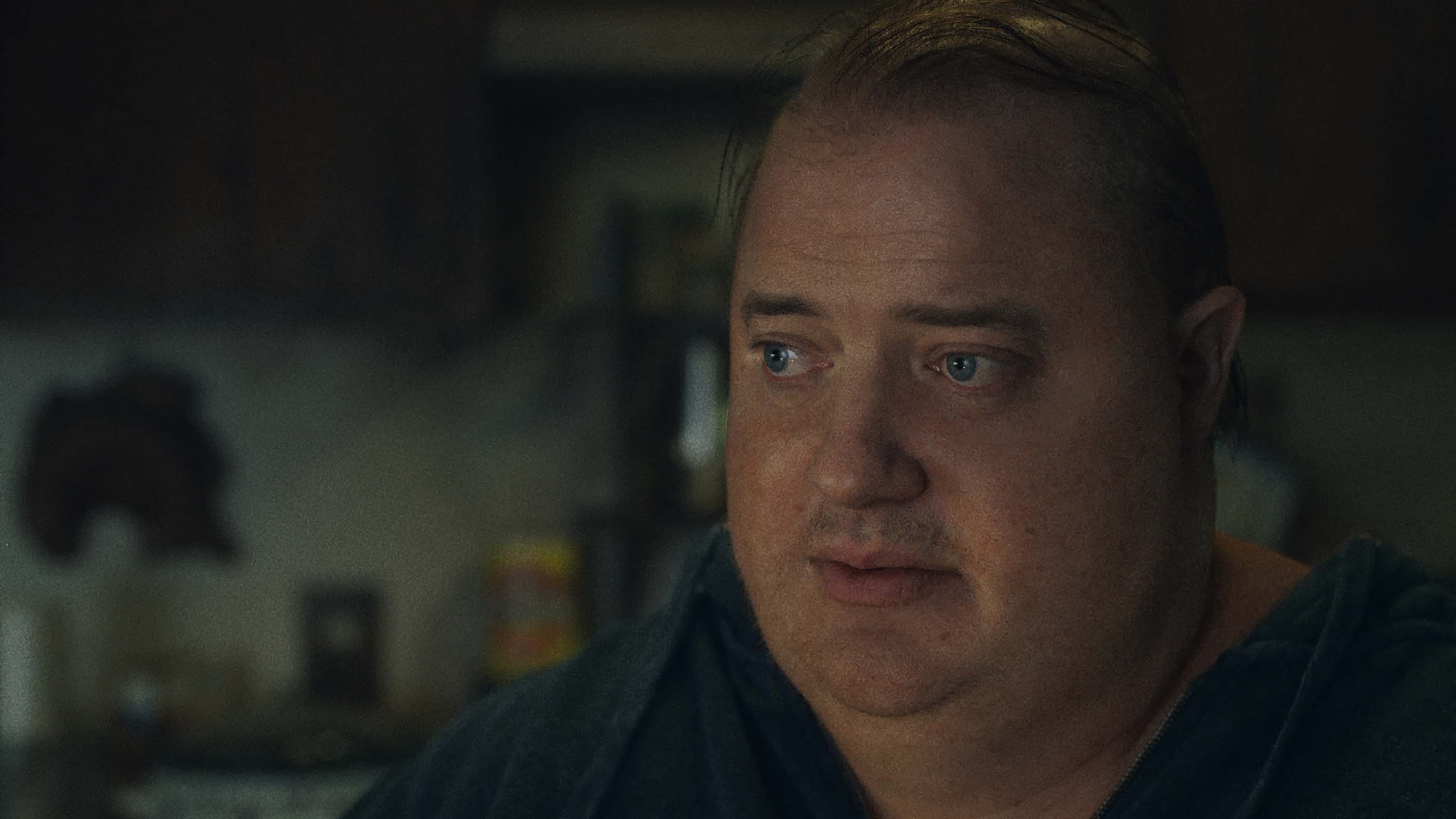
Get exclusive shortlists, celebrity interviews and the best deals on the products you care about, straight to your inbox.
You are now subscribed
Your newsletter sign-up was successful
When we sat down with man-of-the-moment Brendan Fraser and BAFTA-nominated writer Samuel D. Hunter to talk about ‘The Whale’, the story of a morbidly obese recluse, grappling with grief, redemption and psychological trauma, directed by the visionary Darren Aronofsky, we didn’t expect to be discussing 2010’s 7%-Rotten-Tomatoes-rated family comedy ‘Furry Vengeance’, life advice from Sir Ian McKellen, or the real problem with the ‘The Mummy’ sequels.
But, Fraser is such an interesting, open and honest actor, that topics which would usually be difficult to broach in any other conversation come up effortlessly and unfiltered.
In actuality, Brendan Fraser’s recent arc, from leading the biggest blockbusters of the ‘90s and ‘00s, to falling out of favour with Hollywood and returning to blow away audiences, critics and awards voters with a career-best turn in ‘The Whale,’ is the stuff of Oscar-worthy plot itself. It’s not hard to see why the carefully considered psychological drama earned a six-minute standing ovation at the Venice Film Festival or Fraser the nomination for Best Actor at this year’s Academy Awards: it’s carried by an incredible performance by Fraser, which you should definitely pack tissues for when it arrives in cinemas this weekend.
Here, the star and writer reveal the real-life research that went into crafting lead character Charlie, the film’s real-world potential to save lives, and Fraser’s reaction to Tom Cruise’s ‘The Mummy’ revival…
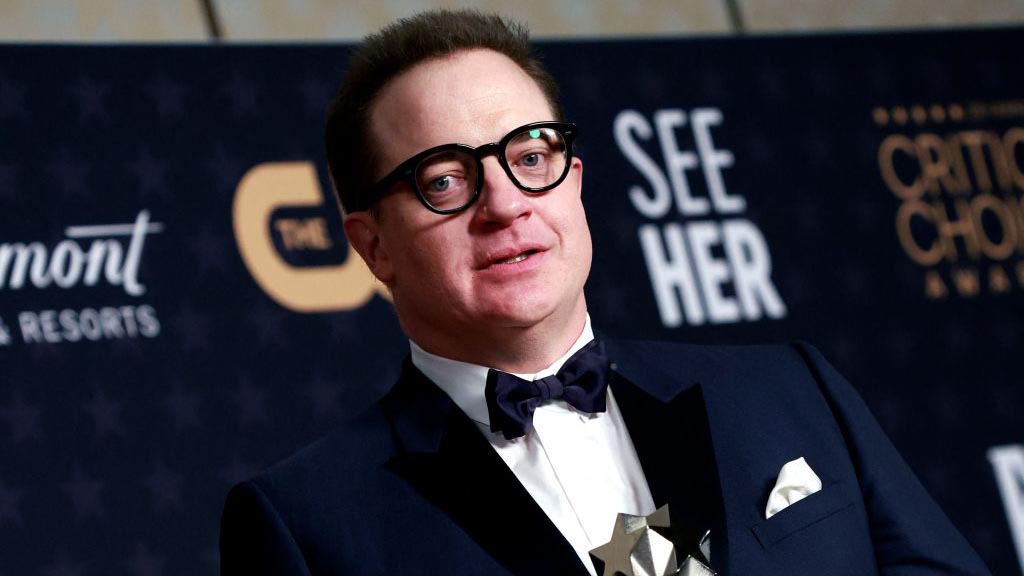
ShortList: It’s clear a lot of care has gone into creating the lead character, Charlie. Could you tell us about the research that went into writing him and portraying him?
Samuel D Hunter: I wrote the play in 2009, and partly created this character because I have a history myself of self-medicating with food. I’d never really seen obesity treated with much sensitivity. So often, especially in cinema, obesity is portrayed as a joke, or used to deride the character. But also, the fact that the character is struggling with obesity is just one thing about him. He's so much more than that.
Brendan Fraser: We also partnered with the Obesity Action Coalition. They're an advocacy group who gave us some really helpful insight into the reality of living with obesity. They have a really a mission statement to end the bias that we as a society uphold, sadly, against those who live with obesity. It starts with how we speak about one another. In a nutshell: Don't be mean. You can do some real harm.
Get exclusive shortlists, celebrity interviews and the best deals on the products you care about, straight to your inbox.
SL: What was the most memorable lesson you took from working with them?
BF: It made me sad that I noticed that of the eight or ten people who I had met - some are bedridden, some had had bariatric procedures or were awaiting procedures - their life's journey had started when they were little kids. An adult in their life - a father figure, a teacher, or a bully - had spoken to them in a way that was recriminating and it stayed with them. It set off a chain reaction, in this case for them, a cycle of overeating, and it brought them to where they are now. I'm not a social psychologist, but it seems pretty simple: Don't do that. There are real health concerns as a result of how we speak towards one another.
Years ago, I was in Thailand and went to a temple to see the reclining Golden Buddha. Before we went through the threshold, there was a sign in the dirt, and it said, “Painful indeed is vindictive speech”. It's true. There's so much that can be avoided by honestly just being empathetic and kind to one another.
SL: Charlie is a rather tormented character. What was that like to play, psychologically?
BF: Everything I needed to know was what Samuel wrote on the page. And having consulted the advocacy group too, it made me feel a sense of appreciation in a way that I wasn't anticipating. On the one hand, when I would have the all the apparatus taken off at the end of the day, I still felt a compression like I felt in the body, I felt a vertigo, like when you step off a boat onto a dock - that kind of undulating feeling - and I take that to mean that your body acclimates to the circumstances that you find it under. More importantly, it made me realise that you need to be an incredibly strong human to live in a body that way. Moreover, you need to be an incredibly strong person emotionally to live that way, too.
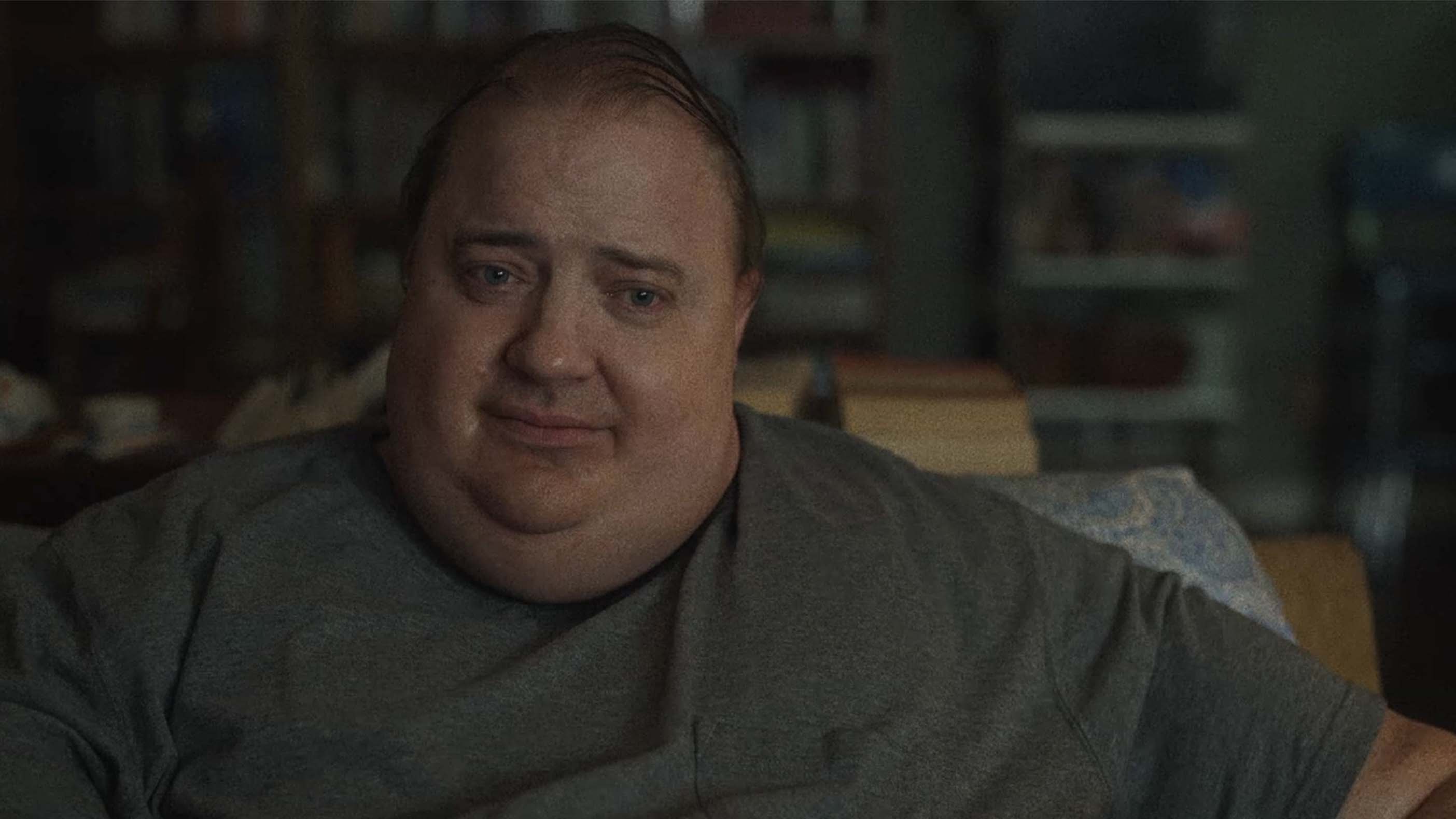
SL: What would you say The Whale is really about?
BF: Empathy, love, redemption
SDH: And hope.
SL: This was a play before it was adapted for the film. What did you want to change and which elements did you know you definitely wanted to keep?
SDH: The humour really needed to survive the adaptation. It was essential that there's a lightness to it. But there were also a lot of moments where we had to ask, how can we tell the story visually? There's not a second bedroom in the play, and there's a big moment in the movie where Charlie unlocks that second bedroom and reveals the archaeology of his past with Alan, his partner. In the play that's done in a monologue to Thomas. The decision to call Ellie is something that's done without words. In the play, Charlie says to Hong Chau's character, Liz, “I think I need to call Ellie,” and that doesn't happen in the movie. Brendan has this uncanny ability to tell a story with his eyes.
SL: Charlie’s partner is named Alan Grant - the same name as Sam Neill’s character is Jurassic Park. Is that intentional?
SDH: Maybe it was subconscious, but that was totally an accident on my part. It wasn't until the film had been playing in theatres and somebody pointed that out to me. That was a total coincidence!
SL: Brendan, you've had such an amazing reaction to this role. How does that love from audiences feel?
BF: Good, nice, rewarding. It feels like… I could get used to this and I hope it stays.
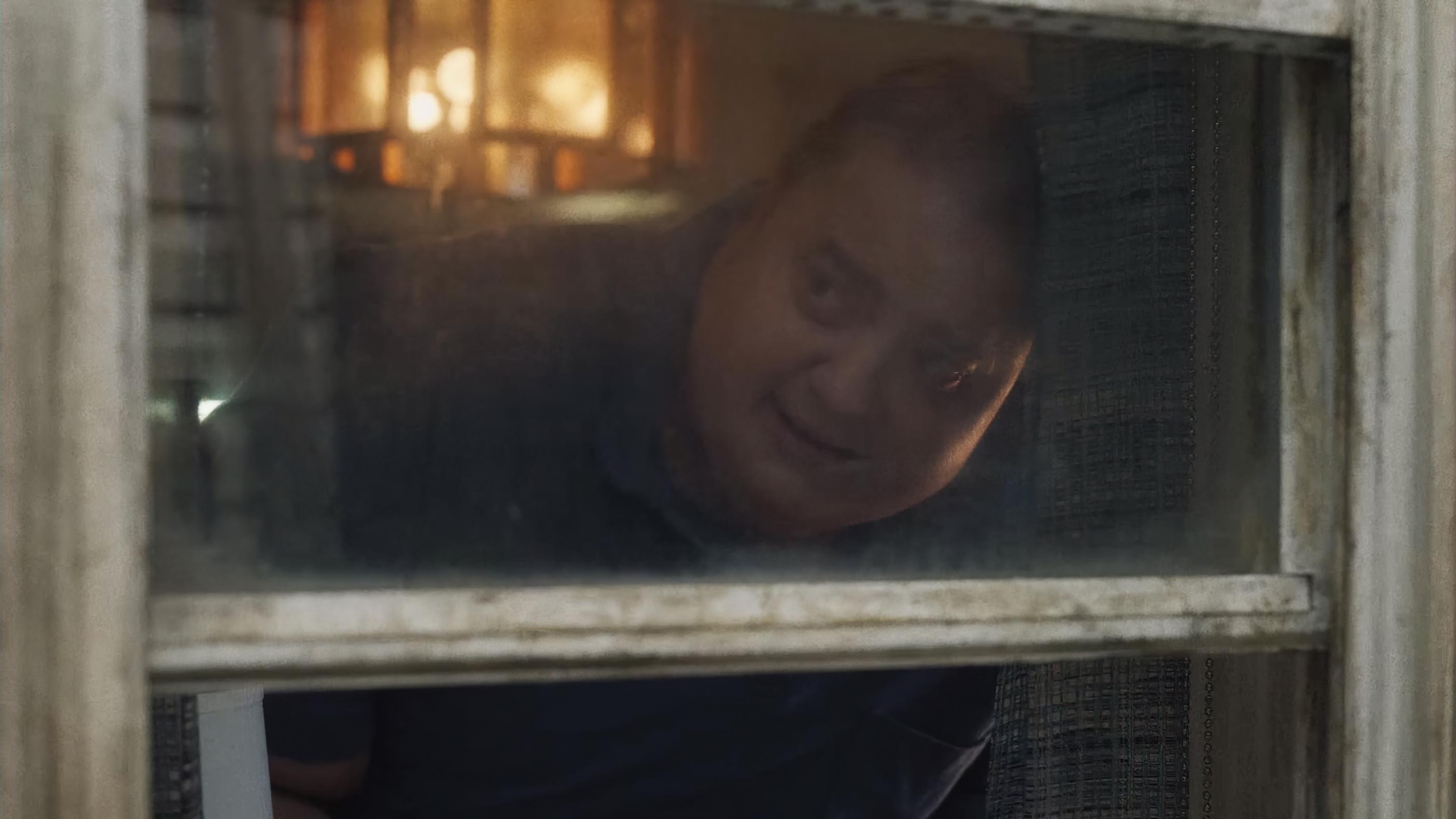
SL: What's been your most memorable fan interaction as a result of the film?
BF: I got a letter from the Obesity Action Coalition, which said nice things about the film but then it was summarised with, “Charlie could save someone's life, we’re firmly convinced.” That opened my eyes. My hope was that we changed some hearts and minds, but in reality, I think it could change a path for someone to make a decision to keep themselves around a bit longer. You don't hear that all the time.
SL: The film has been a major awards season player, and you’re nominated for the Best Actor Oscar for it. How do you feel about the Oscar buzz?
BF: That's way across the horizon right now. I'm not quite sure how to feel. I won’t let myself get ahead of the game here. Truthfully, I'm hopeful. This wasn't a film where the goal was trophies and glory; it was not on my mind in the least. At all. I promise you. I was glad to be working with Darren Aronofsky, world class filmmaker, challenger of the human condition, who offers up no easy answers to his audience and demands that they have a response, whether they want to or not. I knew that I would have a lot of work cut out for me. I wanted that challenge. I also wanted the opportunity to give the role the attention it deserves; the empathy it deserves, and to do it without any need to prove anything. All of those things presented themselves in this opportunity to me.
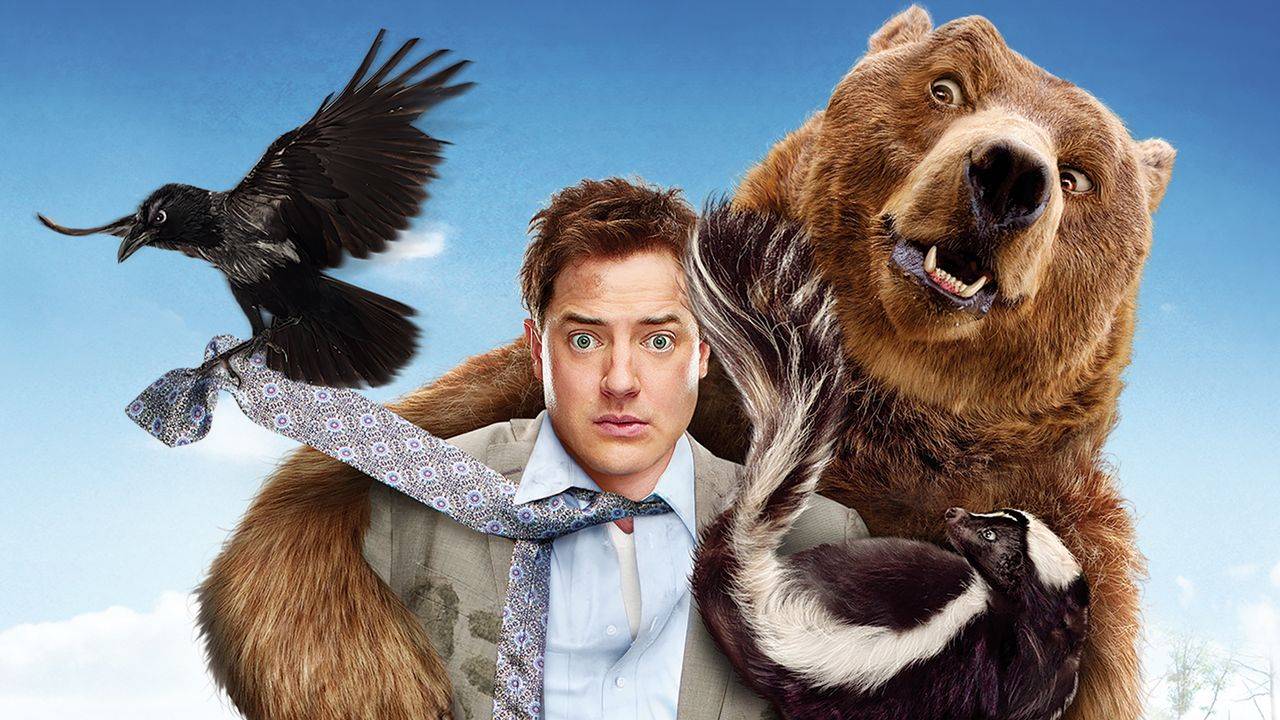
SL: You've got such a varied back catalogue of films. If you could choose one to make a sequel to, what would it be?
BF: ‘Furry Vengeance’, all the way. Or, it would be a toss up between that and ‘Airheads’... I wonder if Adam [Sandler] would want to do that. He probably would. But I’m just lucky to have a job. I’ve made a few sequels - some of them worked. Some of them didn't. It's a decision that you have to make based on what people really want to see. Do they want to repeat something that they really enjoyed already? Then yeah, do ‘The Mummy Returns’. Make the same movie, but call it something different - just give them more of the same and people are happy; they love it. But then, do it three times and take it to China, maybe not so much. Give it to Tom Cruise and... [BF explodes in a coincidental coughing fit].
SL: Is there someone you really love to work with that you haven’t worked with before?
BF: Just yesterday, I saw Ian McKellen for the first time in twenty years. It made me realise not just how much I love the man, but how I felt when I first knew that I would be working with him twenty years ago - a pinch-myself moment. When I was 19, I watched him acting Shakespeare for BBC, and that was the first time that my eyes were opened to an actor who can take heightened text, who could speak in Iambic Pentameter, with as much certainty and familiarity as you and I are having this conversation right now, and demystify all the fancy pants stuff surrounding what it means to act Shakespeare. Then, to work with him in person, and take all that highfalutin ideology that I had, put it aside and realise he's just one of the guys. I remember, we were up for some awards at the time, and someone, I think a producer, who was really long winded, was going to the lectern. He said: Be good, be brief, be seated. Words to live by!
The Whale is out in cinemas now.
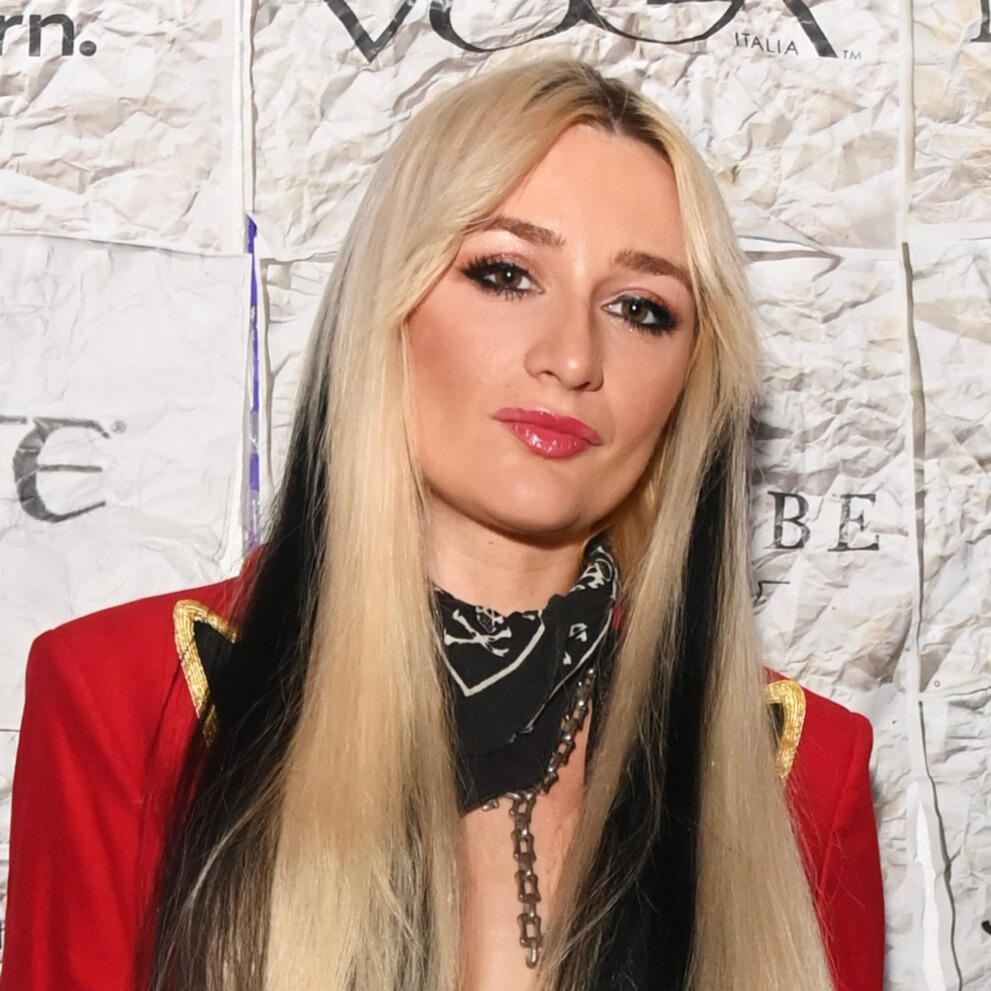
Rebecca May (Bex April May) is an award-winning journalist for Shortlist and some of the world’s biggest publications, delivering the pop culture and lifestyle stories you need to know about - one smart, sharp feature at a time. She’s interviewed rockstars, Hollywood heavyweights and everyone in between.